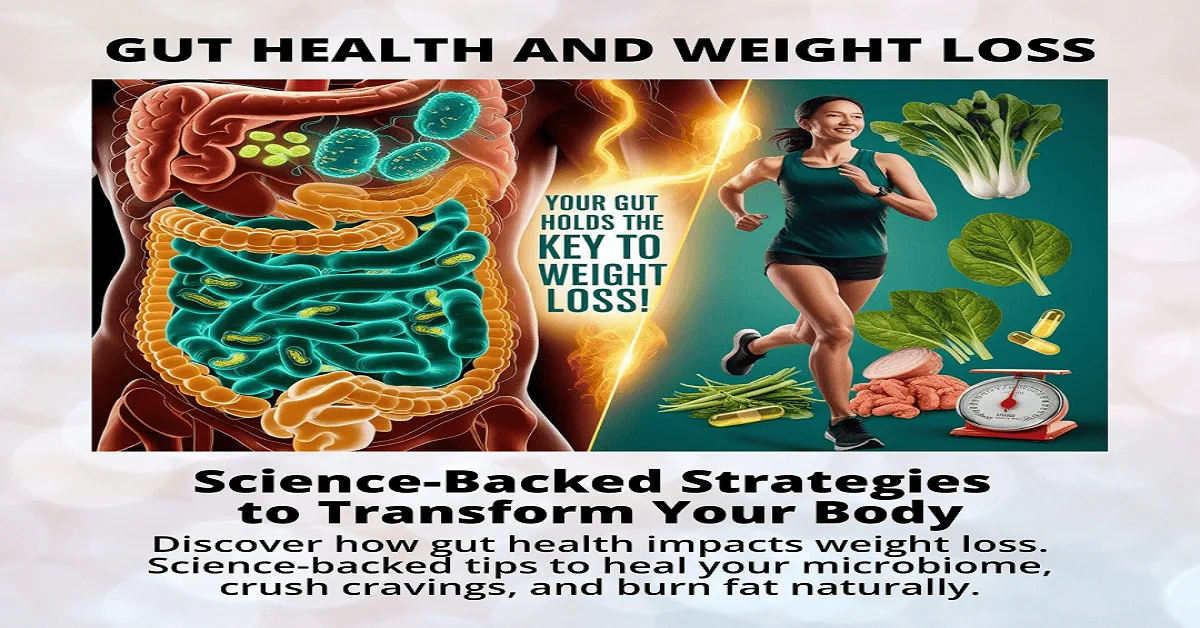☕ Buy Me a Coffee! (And Fuel My Late-Night Blogging Adventures)
Hey there, friend! 👋
First off—thank you for reading my content. It means the world to me! If you’ve found value here (or just enjoyed my ramblings), here’s a fun way to support my work: Buy me a coffee! ☕✨
Wait—what does that mean?
Well, some of the links in this post are affiliate links. That means if you click through and make a purchase, I may earn a small commission—at zero extra cost to you. Think of it like tipping your favorite barista, except I’m serving up blog posts instead of espresso shots.
Why does this matter?
- It helps keep this blog running (and my caffeine addiction alive).
- You get the exact same price—no hidden fees, just good vibes.
- I only recommend products I truly love and/ use myself. No shady stuff—promise!
So if you’re feeling generous (or just want to see what I’ll write about next after three cups of coffee), click away! Your support lets me create more free content for you. Win-win, right?
👉 Click Here to Buy Me a Coffee (or Shop My Faves!)
P.S. Not ready to shop? No worries! Sharing this post or leaving a comment also fuels my motivation. Thanks for being awesome.
Last Updated on April 12, 2025 by Ferdousi Akter
Why Your Gut Might Be the Missing Piece in Your Weight Loss Journey? You’ve tried every diet. You’ve counted calories, sweated through HIIT workouts, and even sworn off carbs. But what if I told you the secret to lasting weight loss isn’t in your gym playlist—it’s in your gut? Emerging research reveals the hidden link between gut health and weight loss—the trillions of bacteria living in your digestive tract—holds the key to why some people shed pounds effortlessly while others struggle. Let’s dive into the science and uncover actionable strategies to transform your body from the inside out.
What Is the Gut Microbiome? (And Why It’s Not Just About Digestion)
The Trillions of Tiny Tenants in Your Gut
Think of your gut as a bustling city. The “residents”? Over 40 trillion bacteria, fungi, and viruses. This microbiome doesn’t just break down food—it regulates immunity, mood, and yes, your metabolism.
Good Bacteria vs. Bad Bacteria: The Balancing Act
Not all gut bacteria are created equal. Bifidobacterium and Lactobacillus (the “good guys”) fight inflammation and aid digestion. But when harmful bacteria like Firmicutes dominate, they extract more calories from food—leading to weight gain.
The Science-Backed Connection Between Gut Health and Weight Loss
How Gut Bacteria Influence Metabolism
Your gut bacteria produce enzymes that break down carbs, fats, and proteins. Studies show that people with a diverse microbiome burn calories faster. For example, a 2021 Nature study found that lean individuals have 70% more gut bacteria diversity than obese participants.
The Role of Short-Chain Fatty Acids (SCFAs) in Fat Burning
When good bacteria feast on fiber, they produce SCFAs like acetate and propionate. These compounds:
- Reduce fat storage.
- Suppress appetite by regulating hunger hormones.
Butyrate: The Secret Weapon Against Stubborn Fat
Butyrate, a superstar SCFA, boosts mitochondrial function (your cells’ energy factories) and reduces insulin resistance. Translation: It helps you burn belly fat faster.
In Gut Health and Weight Loss, Gut Health and Cravings: Why You’re Addicted to Sugar
The Gut-Brain Axis: How Your Microbiome Talks to Your Brain In Your Gut Health and Weight Loss Journey
Your gut and brain are BFFs, connected by the vagus nerve. Harmful bacteria send signals like, “Hey, eat that donut!” by hijacking neurotransmitters.
Serotonin, Dopamine, and the “Hunger Hormone” Ghrelin
- 90% of serotonin (your “happy hormone”) is made in the gut. Imbalances lead to sugar cravings.
- Bad bacteria increase ghrelin, the hormone that makes you raid the fridge at midnight.
Inflammation: The Silent Weight Gain Trigger in Your Gut
Leaky Gut Syndrome and Its Impact on Belly Fat
A leaky gut (when the intestinal lining becomes permeable) lets toxins flood your bloodstream, triggering inflammation. Chronic inflammation = insulin resistance = fat storage, especially around your waist.
5 Science-Backed Strategies to Heal Your Gut Health and Weight Loss (Boost)
Strategy 1: Eat the Rainbow (And No, We Don’t Mean Skittles)
Colourful veggies are packed with polyphenols—antioxidants that feed good bacteria.
Top 10 Fiber-Rich Foods to Feed Your Gut Bacteria
- Chicory Root (64% fiber by weight!)
o Why It’s Great: Packed with inulin, a superstar prebiotic fiber that fuels good bacteria like Bifidobacterium.
o How to Eat: Brew it as a coffee substitute or add roasted chicory root to smoothies. - Garlic (A Prebiotic Powerhouse)
o Why It’s Great: Contains fructooligosaccharides (FOS), which boost gut diversity and fight inflammation.
o How to Eat: Add raw or roasted garlic to sauces, soups, or dressings. - Jerusalem Artichokes (aka Sunchokes)
o Why It’s Great: One of the richest sources of inulin—perfect for feeding Lactobacillus strains.
o How to Eat: Roast them like potatoes or slice them thinly into salads. - Dandelion Greens
o Why It’s Great: Loaded with inulin and antioxidants. They’re a bitter green that stimulates digestion.
o How to Eat: Sauté with olive oil or blend into green smoothies. - Onions
o Why It’s Great: High in FOS, which helps reduce harmful bacteria like Clostridium.
o How to Eat: Caramelize for soups, stir-fries, or gut-friendly tacos. - Leeks
o Why It’s Great: Cousins of onions, leeks offer FOS and vitamin K for gut lining repair.
o How to Eat: Add to soups, quiches, or roast with olive oil. - Asparagus
o Why It’s Great: Contains inulin and glutathione, a detoxifying antioxidant.
o How to Eat: Grill with lemon or chop into omelettes and salads. - Oats
o Why It’s Great: Rich in beta-glucans, a fiber that lowers cholesterol and feeds Akkermansia (a fat-burning bacteria).
o How to Eat: Soak overnight for easier digestion or bake into gut-friendly cookies. - Green Bananas
o Why It’s Great: Unripe bananas are loaded with resistant starch, which survives digestion to feed your microbiome.
o How to Eat: Slice into smoothies or bake as a low-sugar snack. - Flaxseeds
- o Why It’s Great: A mix of soluble and insoluble fibre that bulks up stool and reduces bloating.
o How to Eat: Grind and sprinkle on yogurt, oatmeal, or salads.
Pro Tip for Maximum Impact
Rotate these foods weekly to diversify your gut bacteria! Pair them with probiotic-rich foods (like yogurt or kimchi) for a synbiotic effect—think of it as a “power couple” for your microbiome.
This list balances fibre quantity and prebiotic quality, ensuring your gut bacteria thrive while keeping your meals delicious and varied.
Strategy 2: Fermented Foods: Nature’s Probiotic Powerhouses
Kimchi, kefir, and sauerkraut introduce live bacteria to your gut.
How to Add Fermented Foods to Every Meal
- Breakfast: Kefir smoothie.
- Lunch: Kimchi Buddha bowl.
Strategy 3: Ditch Artificial Sweeteners (They’re Gut Saboteurs)
Aspartame and sucralose kill good bacteria. Opt for raw honey or stevia instead.
Strategy 4: Sleep Like Your Gut Depends on It (Because It Does)
Poor sleep disrupts your microbiome. Aim for 7–9 hours nightly.
Strategy 5: Stress Less, Weigh Less: The Vagus Nerve Hack
Chronic stress shrinks good bacteria. Try daily deep breathing or yoga to activate the vagus nerve.
Top 5 Gut Health and Weight Loss: Gut-Health Supplements to Accelerate Weight Loss
Probiotics: Strains That Actually Work for Fat Loss
- Lactobacillus gasseri: Reduces belly fat by 8.5% in 12 weeks (study-proven).
- Bifidobacterium lactis: Curbs sugar cravings.
Prebiotics: The Unsung Heroes of Gut Health and Weight Loss
Prebiotic fibres (like inulin) feed probiotics. Brands like [Affiliate Product] offer gut-friendly blends.
Myth Busting: “All Probiotics Are the Same” and Other Lies
Spoiler: Most store-bought probiotics die before reaching your gut. Look for delayed-release capsules or soil-based strains.
Real-Life Success Story: How Maria Lost 30 Pounds by Fixing Her Gut
Maria, 42, struggled with yo-yo dieting for years. After focusing on gut healing (probiotics + fermented foods), she lost 30 pounds in 6 months—and kept it off.
FAQs: Your Burning Questions About Gut Health and Weight Loss, Answered
- “Can gut health affect weight loss?”
Absolutely! A balanced gut microbiome improves metabolism, reduces inflammation, and regulates hunger hormones like leptin and ghrelin. Studies show people with diverse gut bacteria lose weight more efficiently than those with imbalanced microbiome. - “How does gut bacteria cause weight gain?”
Harmful bacteria (like Firmicutes) extract more calories from food, promote fat storage, and trigger cravings for sugary, processed foods. They also inflame the gut lining, leading to insulin resistance—a key driver of belly fat. - “What foods heal your gut for weight loss?”
Focus on prebiotic foods (garlic, onions, asparagus), probiotic-rich fermented foods (kimchi, kefir), and anti-inflammatory options (wild-caught salmon, leafy greens). Avoid processed sugars and artificial sweeteners, which harm good bacteria. - “Do probiotics help you lose belly fat?”
Certain strains do! Lactobacillus gasseri and Bifidobacterium lactis are proven to reduce belly fat and curb cravings. Pair probiotics with prebiotic fiber for maximum impact—think of them as “fertilizer” for good bacteria. - “Why am I addicted to sugar? Gut health”
Bad bacteria thrive on sugar and hijack your brain via the gut-brain axis, triggering dopamine-driven cravings. Restoring gut balance with fiber and fermented foods starves sugar-loving microbes, reducing cravings in 2–3 weeks. - “How long does it take to improve gut health?”
Most people notice changes (better digestion, fewer cravings) in 2–4 weeks. Full gut healing, especially after conditions like leaky gut, can take 6–12 months. Consistency with diet and stress management is key! - “Best supplements for gut health and weight loss”
Top picks:
Probiotics (look for L. gasseri or B. lactis).
Prebiotics (inulin or acacia fiber).
L-Glutamine (repairs leaky gut).
Digestive enzymes (improve nutrient absorption).
Butyrate supplements (boost fat burning). - “Does leaky gut cause weight gain?”
Yes! A permeable gut lining allows toxins to enter the bloodstream, causing chronic inflammation and insulin resistance. This forces your body to store fat—especially around the abdomen—instead of burning it. - “What is the gut microbiome’s role in metabolism?”
Gut bacteria break down food, produce short-chain fatty acids (SCFAs) like butyrate, and regulate hormones that control appetite and fat storage. A healthy microbiome can increase calorie burn by up to 10%, per research. - “What are natural ways to balance gut bacteria?”
o Eat 30+ plant-based foods weekly (diversity matters!).
o Add daily fermented foods (sauerkraut, kombucha).
o Manage stress with yoga or meditation (stress kills good bacteria).
o Prioritize sleep (7–9 hours nightly).
o Avoid antibiotics unless absolutely necessary.
Conclusion: Your Gut Is Your Weight Loss Ally—Start Listening to It
By prioritizing gut health and weight loss, your gut isn’t just a digestion machine—it’s the control center for weight loss. By nurturing your microbiome with the right foods, supplements, and habits, you’ll unlock effortless fat burning. Ready to transform your body from the inside out? Your gut’s got your back.


